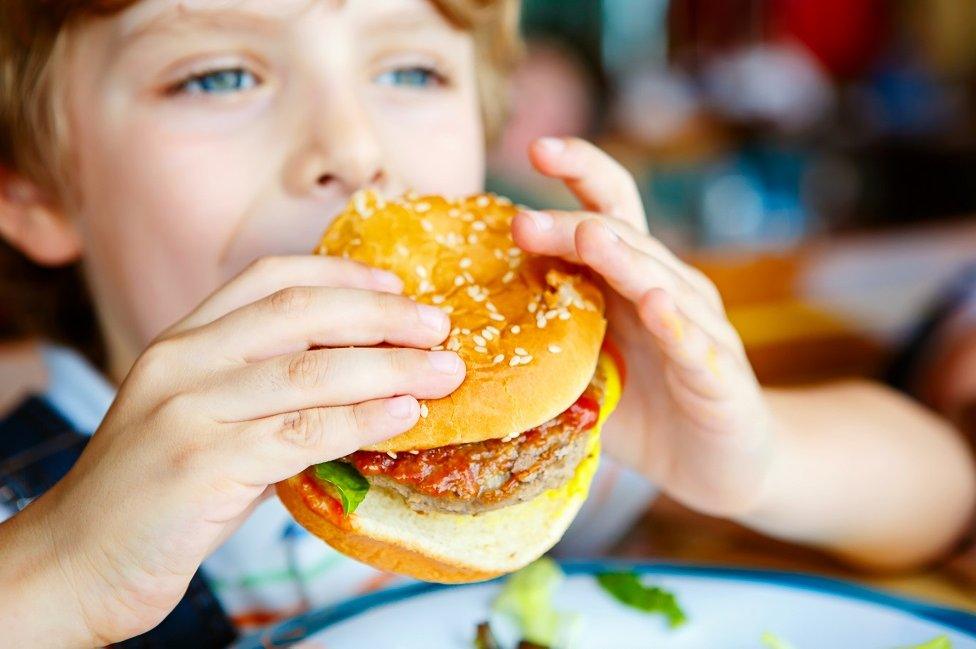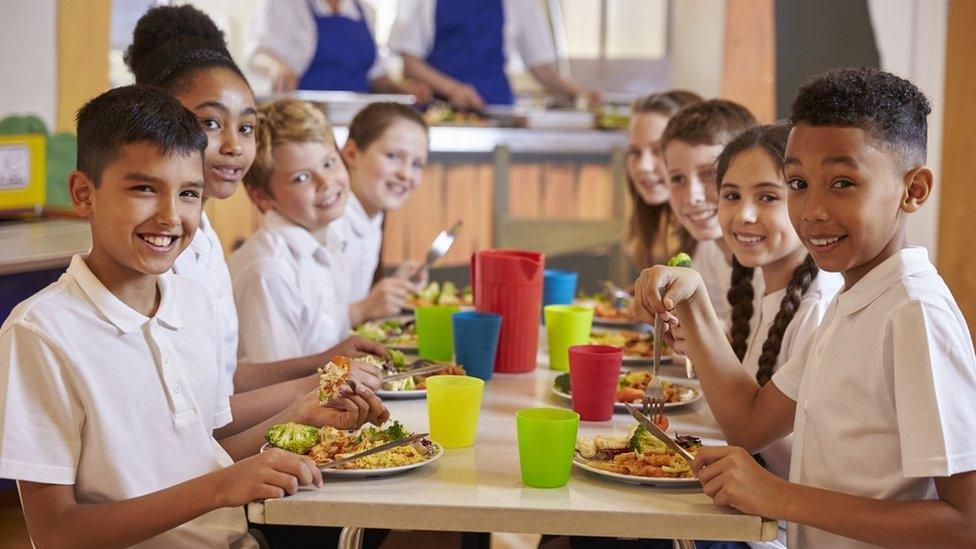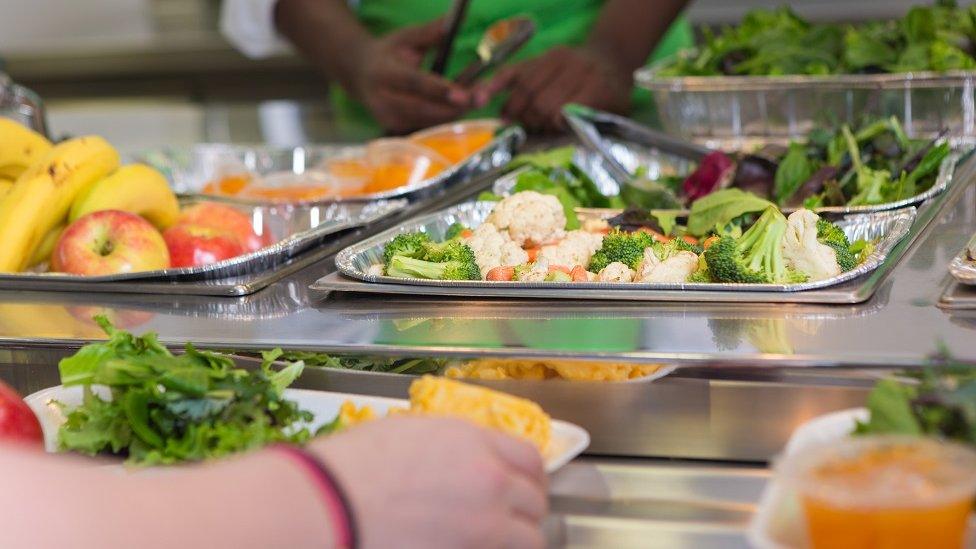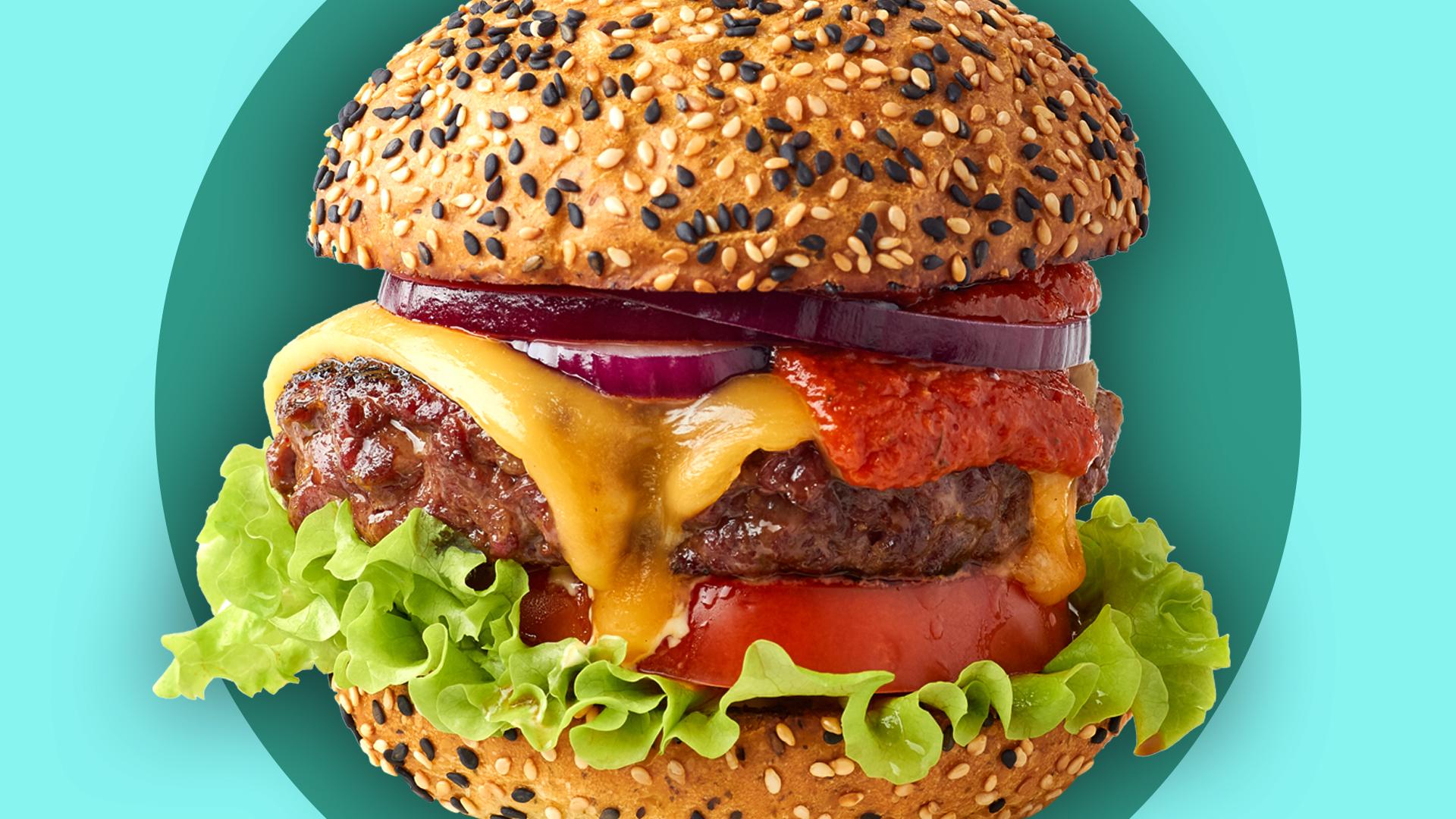Less processed red meat and sugar on the menu for Scotland's schools
- Published
- comments

Pupils in Scotland will be offered less processed red meat as part of their school dinners in an effort to improve children's health.
The plans will mean food like sausages, bacon, burgers and ham will not be on the dinner menu as often as before.
Secondary school children will be allowed a maximum of 130 grams of processed red meat per week and primary school pupils only 100 grams.
It's the latest effort to try and make school food healthier, with smoothies and fruit juices also being banned from both primary and secondary schools due to their high sugar levels.
Red meat includes beef, lamb and pork including minced beef, pork chops and roast lamb. It does not include chicken or turkey meat.
Processed meat is meat that has been preserved by smoking, curing, salting or adding preservatives. So this means food like ham, bacon, and hot dogs.

The latest NHS figures show that around one in four children, aged two to 15 years old - are at risk of being overweight, with just over one in 10 at risk of being obese.
Scottish Education Secretary John Swinney said there are more than 360,000 meals served in schools every day, and "these changes will improve our school food, help tackle childhood obesity and give our children the best start in life".
"One small carton of fruit juice or smoothie contains more than the entire recommended sugar intake for a primary pupil's lunch."

The new rules will start in autumn 2020, giving schools the time to change their dinner menus. The plans will also affect which puddings are allowed on menus, as well as food sold in tuck shops.
Primary schools will not be allowed to serve muffins, ice-cream, sponge pudding and biscuits more than three times per week. Tuck shops will also have to offer full portions of fruit or vegetables, while breakfast clubs will be prevented from serving sugary cereals.
Claire Hislop, from NHS Health Scotland, said: "The changes to the food and drink provided in schools, will help create an environment in which children can choose a healthy, balanced diet."
- Published18 January 2019

- Published10 July 2018

- Published30 May 2018

